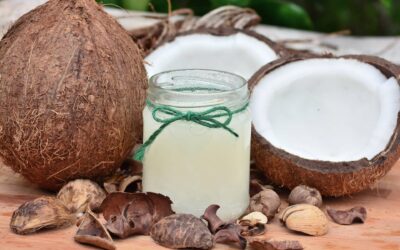A General Overview
As people are now being more concerned about what fats to consume, there has been a considerable shift in popular opinion especially when it comes to dietary fats. People are now being aware and are starting to appreciate the health benefit that comes with certain types of fats. On the other hand, there has been a remarkable awareness against the consumption of other fats, like the saturated and trans fatty acids which is mostly obtained from eating meat, be it processed or red.
With the growing awareness, many today are now shifting from these fats which are considered “unhealthy” to plant-based fats which can be easily obtained in a clean and organic fashion. MCT oil which is also known as medium chain triglyceride oil has been pulling the market recently as a vast majority of health enthusiasts are making it their mission to publicize the outstanding benefits of MCT oil.
With our interest to export the best products to the world and to encourage a healthy life style, we will be looking at what MCT oil is and the health benefits it brings. You will be able to understand how MCT oil differs from other fats and if all that they say about the oil is true.
What is MCT?
MCT stands for medium chain triglycerides. Triglycerides is nothing more than a technical term for “fat,” with its purpose of either being used up for energy or stored as body fat when consumed.
As fats, MCTs are mostly found in foods like coconut oil and palm oil and unlike LCTs (long chain triglycerides) they turn to metabolize differently when consumed. This is largely due to the sizes of these fatty acids and there is a remarkable difference between MCFA (Medium Chain Fatty Acids), or MCTs, and LCFA.
Over 98 to over 100% of almost all the fatty acids we consumed are LCTs (1) be it animal or plant-based. The good thing is MCTs are beneficial when compared to these LCTs (2).
MCTs can be easily processed and metabolize in the system and are less likely to end up or stored as fat. MCTs make their way directly to the liver as they are consumed and used up as energy.
LCTs on their part need to be first broken down by pancreatic enzymes as they are consumed. After this process, it is then delivered to the lymphatic system before it makes its way to the liver to be used up as energy. As LCTs are not easily metabolized by the body, the excess is stored as fat.
Before we go any further, it is very important to understand what fatty acids are;
Fatty acids are seen or considered as the building blocks of the fat in both our bodies and the foods we consume.
If we have to look into the typical digestion process, the body is well known to break down fats into fatty acids which are then absorbed into the blood. Fatty acids are known to act as a store of energy and when our bodies run out of glucose as fuel, the fatty acids are then used to fuel our cells instead (3).
Fats are named, differentiated or best described after their chemical structure which is usually through the length of their fatty acid chain. Also, every triglycerides are made up of a glycerol molecule and three fatty acids.
LCTs which are known to make up the majority of fats in our diets can contain 13-21 carbons whereas MCFAs or MCTs have fewer than 6 carbon atoms which makes it easy for the body to absorb MCTs faster than LCTs.
Types of MCTs
There are basically four main types of MCTs;
- C6: also known as caproic acid or hexanoic acid. Characterized as the shortest MCT with six carbons. It can be processed very quickly. Unfortunately, C6 is removed from MCT oil for its unpleasant taste and smell.
- C8: also known as caprylic acid or octanoic acid. High in anti-microbial properties and well known to maintain a healthy gut. MCT oil can be 100% C8.
- C10: also known as capric acid or decanoic acid. It can be easily transformed into ketones in the liver. Can be metabolized a little slower compared to C8. C10 can be 100% MCT oil.
- C12: also known as lauric acid or dodecanoic acid. Composed of most of the MCTs found in coconut oil. It is the slowest to metabolize and still contains anti-microbial properties. Not often used in MCT oil
MCT Oil
MCT oil is a supplement made up of the different types of medium chain fatty acids (MCFA). It is a highly concentrated source of MCFAs obtained from coconut or palm kernel.
MCT oil can either be 100% caprylic acid which is commonly termed C8, 100% capric acid also known as C10. It is commonplace to also find a combination of C8 and C10 MCT oil depending on the usage of the oil. In some cases, minor traces of lauric acid (C12) can be found in MCT oil. Some producers avoid the use of C12 due to its slow absorption or digestion compared to the other MCTs. Also, caproic acid (C6) is avoided as it is characterized by an unpleasant smell and taste.
Is MCT oil the same as coconut oil?
MCT oil differs from coconut oil in that, MCT oil can either be 100% C8 or C10 which are known to be easily and rapidly processed when consumed compared to C12 which is maintained in coconut oil. As a matter of fact, coconut oil is about 42% of lauric acid (4).
MCT oil can be considered a better option of the coconut oil. Coconut oil contains all the four main types of MCTs including some LCT’s whereas MCT oil is a highly concentrated source of either a single MCT like C8 or C10 or a combination of both. This can be a concentrated version of just the healthiest compounds of coconut oil.
Production of MCT Oil
MCT oil is mostly sourced from coconut oil which is about 55%, Palm kernel oil which is over 53%, and other dietary sources like whole milk (9%) and butter (8%) of the oil can be obtained from these sources.
Even though the above-mentioned sources can be used to produce a great quality MCT oil, we prefer to work mostly with MCT oil produced from coconut oil. Although palm oil is highly rich in MCTs, their production comes with the issue of deforestation which is a major concern today for the palm oil industry.
Also, dairy products like milk and butter are gradually becoming unpopular as many feel the health needs for organic and plant-based products.
Another alternative source for MCTs can be from whole foods. With whole foods, the percentage of MCTs can be remarkably lower compared to MCT oil. Another downside with whole foods is, they also contain LCTs which is absent in MCT oil.
Using MCT oil alongside whole foods can be a good idea as the consumers can avoid lauric acid while repeating excess benefits from the caprylic and capric acids from MCT oil.
The Production process
There are basically two ways through which MCT oils can be obtained or produced. The first can be through chemical recombination of refined fatty acids from the coconut oil using glycerine or through a simple fractionated process by molecular distillation of virgin coconut oil.
With the chemical recombination process, the end product is a synthetic vegetable-based ester whereas with the molecular distillation (recommended) process the MCT oil is a 100% natural product processed with only physical treatments. With this production process, the separation process is non-chemical and only a simple physical separation is used.
Using the physical distillation and separation process the oil’s natural characteristics are substantially preserved compared to the oil obtained through chemical synthesis of the organic raw materials.
The fractionation process allows the extraction of the MCTs from the coconut oil required for the MCT oil through a first distillation. As the MCTs are isolated a lipase esterification or a molecular distillation process is used to isolate the triglycerides in any required form or as per the end-use of the oil.
Even though MCT oils are produced in a laboratory setting, the oil is made up of only natural fats.
Health Benefits of MCT Oil and MCTs in General
If coconut oil is already being described as a “superfood,” then, think of something better than that to describe MCT oil. In a simple phrase, we can describe MCT oil as a “healthier version” of coconut oil.
The health benefits of MCTs are outstanding, then if we think of MCT oil where only the most healthier MCTs are used in its production, the benefits will be mind-blowing. MCT oil is “pulling” the market today as a dietary supplement and as a healthy food all because of the health benefits the oil brings.
MCTs are;
- Known to reduce hunger and appetite.
- Good for fueling the brain
- Known contain anti-microbial properties
- Good for a healthy heart
- Immune booster agent
- Perfect for weight loss
What is MCT oil good for?
MCT oil can be an energy booster as MCTs can increase energy levels and burn fat. The oil can increase performance for athletes and also bodybuilders (4a). For bodybuilders, it can improve confidence as MCTs are known to increase lean muscle mass and burn fat as mentioned earlier. Also, taking MCT oil as a pre-workout regimen can help with a better workout experience (4b).
The oil can help with obesity. Consuming MCT oil can be good to maintain healthy weight loss. As indicated earlier, MCTs can help to reduce hunger and appetite (5). This can help to reduce excessive eating habits. When MCTs are consumed they metabolize rapidly and make their way to the liver where it is used for energy. On the other hand, LCTs are slow to process and the excess is stored as fat. MCTs are good at suppressing the accumulation of body fat (6).
Consuming MCT oil can help burn calories. The MCTs found in coconut oil are known to increase the level of calories our body burns up compared to LCTs (7) (8). A study also shows that consuming 15-30 grams of MCTs a day helps increase 24-hour energy expenditure by 5% (9).
MCT oil can help to improve our gut health. MCTs can help with a healthy gut health as they are known to fight against harmful bacteria and leaving out the good bacteria. The oil can also help to enhance digestion and prevent diarrhea.
MCTs can help to regulate blood sugar levels and reduce the risk of diabetes. MCT oil can help to lower blood sugar levels and also improve insulin sensitivity (10). Studies have shown that improve insulin sensitivity can help diabetes patients who are at high risk.
MCT oil can help improve brain health. MCTs are known to produce ketones which are well known to fuel the central nervous system. MCTs are also known to help slow down the side-effects of Alzheimer’s disease (11).
Market Overview of MCT oil
If you pay attention to the food and beverage industry today, health trends are a major driving force in recent years. There has been a remarkable increase in consciousness about what we consume as food and even what we apply to our bodies. There has been a wide level of awareness on healthy foods and to be precise, organic and natural foods.
Following this new age, there has been a growing obsession with coconut oil and coconut oil-related products as many today even consider coconut as a “superfood.” This recent popularity in coconut oil is having a “spillover” effect on some of the coconut by-products, like MCT oil, to begin with, coconut cream, coconut milk, and even coconut water.
MCT oil, as you may know, is a natural and sustainable product and with its outstanding health benefits, the oil has been gaining huge popularity in the global market. One of the major factors of the huge demand for MCT oil today is due to its recommendation as an effective dietary and most importantly weight loss supplement. In 2019, the dietary and health supplements market accounted for 57% of the total revenue of MCTs.
The Market Insight
The global MCT market by 2019 was valued at about USD1.7 billion with an estimated compound annual growth of up to 7% as from 2020 to 2027. For MCT oil, the market was valued at over USD 689 million in the same year and estimated to reach over USD 946 million by 2024 according to Technavio (12).
North America (the United States, Canada, and Mexico) has been dominating the market share of MCT and it is expected to maintain its dominance for a long period of time and probably until 2027. As of 2019, North America was responsible for a volume share of 35% of the MCT market (13).
Europe, which is the second-largest MCT oil market is made up of markets like Germany, France, the UK, Italy, Russia, and Turkey as per the consumption of MCT oil.
Asia Pacific which is the largest region for the manufacturing and supply of MCT oil is also experiencing an increase in market share for countries like China, Japan, Korea, India, Australia, Indonesia, Thailand, Vietnam, Philippines, and Malaysia.
The Asia Pacific region is expected to experience a substantial growth in the consumption of MCT oil with an anticipated demand value of 120 kilotons of MCT by the year 2025.
It is estimated South East Asia holds a 27% market share for MCT oil.
South America (Brazil, Argentina, Columbia) and the Middle East (Saudi Arabia, UAE) are also experiencing a slow but progressive increase in market share for MCT oil. In Africa, an increase in demand is seen in countries like Egypt, Nigeria, and South Africa.
The Demand
The Demand for MCT oil is widely seen in the dietary and health supplements, pharmaceuticals, and cosmetic and personal care industries. From close observation, the key factor that triggers the market growth for MCT oil is the demand for natural products.
Dietary and health supplements are responsible for the highest application of MCT oil. As indicated earlier, 57% of the revenue generated from MCT oil in 2019 was accounted for from the dietary and health supplement market. The reason for such demand can be attributed to the fact that MCTs are widely used in formulating numerous health and dietary supplements.
As we all know, the health trends, which also constitute the cosmetic and personal care industry are “preying” for such organic and natural products with huge health benefits. For centuries, coconut oil has been widely used in the cosmetic and personal care industry in products such as makeups, moisturizers, and skincare products. With the higher potential with MCT oil, the cosmetic industry is now open for better quality products for their clients.
With the antioxidant, anti-microbial and anti-inflammatory properties of the MCT oil, the cosmetic and personal care industry has been slowly getting involved in MCT oil. In the cosmetic industry, MCT oil can be used as a viscosity regulator, emollient, and as a carrier oil for highly potent substances in numerous cosmetic formulations like lipsticks, creams, sunscreens, perfumes, bath oils, and even body lotions.
The high demand for MCT oil in the cosmetic and personal care industry is also due to the physical benefit of the oil. MCT oil is considered to be a rich moisturizer, provides a smooth texture when applied to the skin and most importantly, it reduces the aging effect on the skin. Another benefit that has contributed greatly to the demand for MCT oil is the oil’s ability to act as a non-comedogenic agent which limits pore-clogging.
Another key factor contributing to the demand for MCT oil in the personal care industry is the natural nature of the oil. The cosmetic industry is now focused on using purely organic products to deal with the issue of sensitive skins. As a naturally rich oil, it can be less harmful to the skin.
Also, the characteristics of MCT oil make a great fit in the aromatherapy industry. The oil is known to be lightweight (easy to absorb in the body), odorless, colorless, and with a long shelf life.
A fast and remarkable increase in demand can also be seen in the fitness industry. First in the formulation of sport nutrition supplements used during training for endurance and secondly for weight loss supplements and the development of lean muscle mass.
Besides the personal care and cosmetic industry as one of the major drivers in the demand for MCT oil, social concerns on issues like stress, and obesity also, play a contributing role in the high demand for MCT oil. We see a wide acceptance of MCT oil in massage parlors and widely used for stress-related therapies. As mentioned earlier, MCTs are well known to reduce hunger and appetite, improve digestion, metabolism and also increase energy, and helps greatly to burn fat.
With the acceptance of MCT oil in the pharmaceutical industry, we believe the market demand for MCT oil will only know growth in the near future. With the benefits researched on about MCTs, and as it is known to reduce the risk of cardiovascular diseases and also provides a solution for diabetes patients, MCT oil stands a chance to bring value to the pharmaceutical industry. MCT oil with no doubt can be used as a carrier for soluble drugs and to step down the potency of certain drugs.
The Supply
The supply of MCT oil in high quantities is mostly seen from the Asia Pacific region and from the countries with the leading producer of the original source of MCT oil (coconut oil). As mention above, the majority of MCT oil is obtained from both coconut oil and Palm oil.
MCT oil can also be obtained from dairy products like milk and butter but in very small amounts. Also, many buyers of MCT oil prefer natural and organic MCT oil from “green origin.”
In 2019, over 63% of MCT oil found in the market was obtained from coconut, which is a considerably larger share of the global market. The MCT oil obtained from palm kennel in 2019 constitutes about 34.29%.
The supply of MCT oil derived from palm oil is greatly hampered by the deforestation issues palm agricultural activities come with. Many are advocating for a “green earth” and so as consumers of MCT oil.
The main countries responsible for the supply of MCT oil are the Philippines, Malaysia, Indonesia, India, and Sri Lanka. An increase in the supply of MCT oil in other countries like the United States, China, the Netherlands, Germany, France, and the UK cannot be neglected. Such countries are known to import coconut oil, palm oil to produce MCT oil and resell it to the world. Leading companies from the above-mentioned nations are responsible for more than 61% of the total market share of MCT oil supplied globally.
As the demand for MCT oil took an upward spiral, supply has only known decrease in recent years. Over 90% of the MCT oil found in the market is produced from either coconut oil or palm oil. As the suppliers, manufacturers, and growers were not prepared for the market demand and also, considering the time period for the planted crops used to produce MCT oil to get to maturity, through harvest and production, supply has always been an issue and limited.
Which explains why the price for MCT oil has only been increasing.
Key considerations on how to source and import quality MCT oil
With the rapid growth of the MCT oil industry it is common practice for businesses and also individuals to jump in and take advantage of the opportunity. There has been a remarkable increase in companies claiming to supply MCT oil from almost all parts of the world.
To meet the ever-increasing demand, manufacturers can neglect certain key production practices in a bid to get their products to the market and secure a greater market share. It is obvious to spot suppliers who are not driven by “humanitarian” purposes but rather motivated by the profits.
It is also possible for manufacturers to falsify the specification of the MCT oil by adding other easily obtained fatty acids to reduce the production cost, increase volume, and to meet the market demand. This explains why low quality MCT oils are flooding the market today and at a “dumping” price.
When sourcing MCT oil, it is important to work with legitimate and reputable companies. Suppliers who will stand for the health benefits of MCT oil and have the end consumer at heart. Businesses that will follow and work with only the best production practices of MCT oil, for the betterment of humanity.




